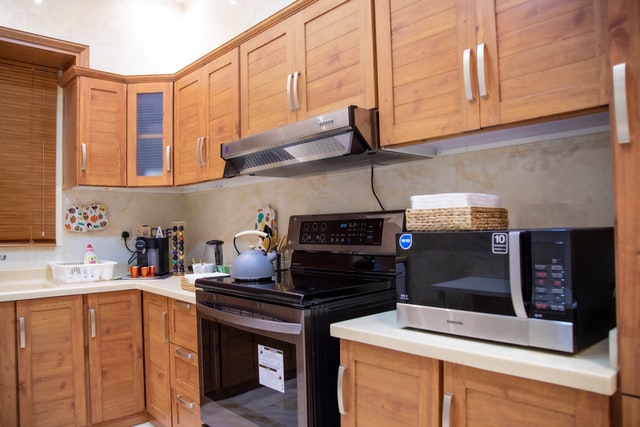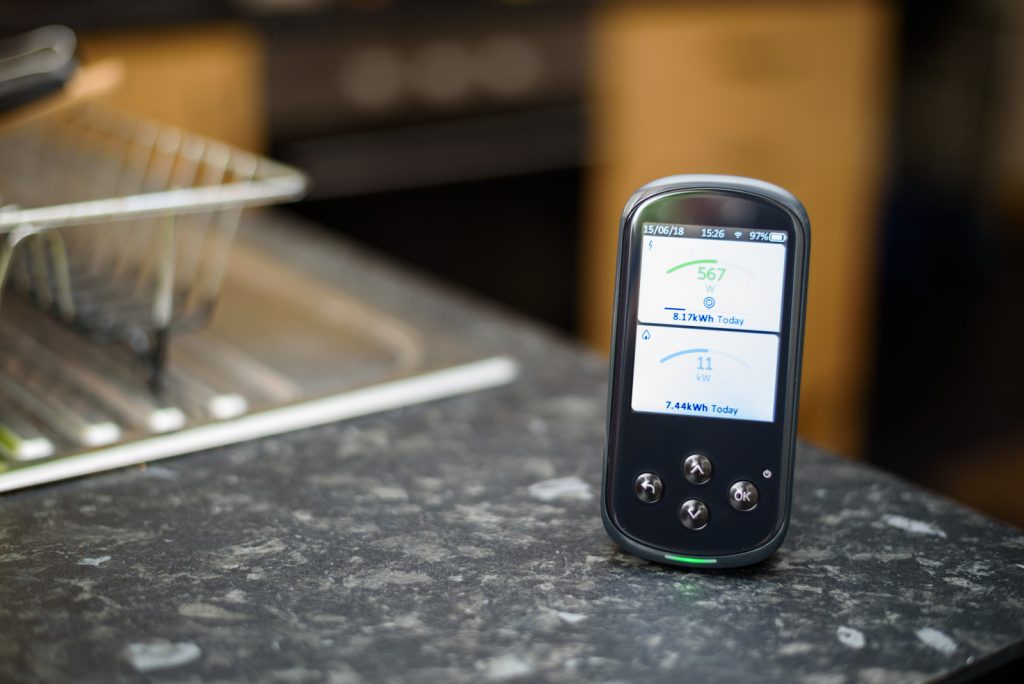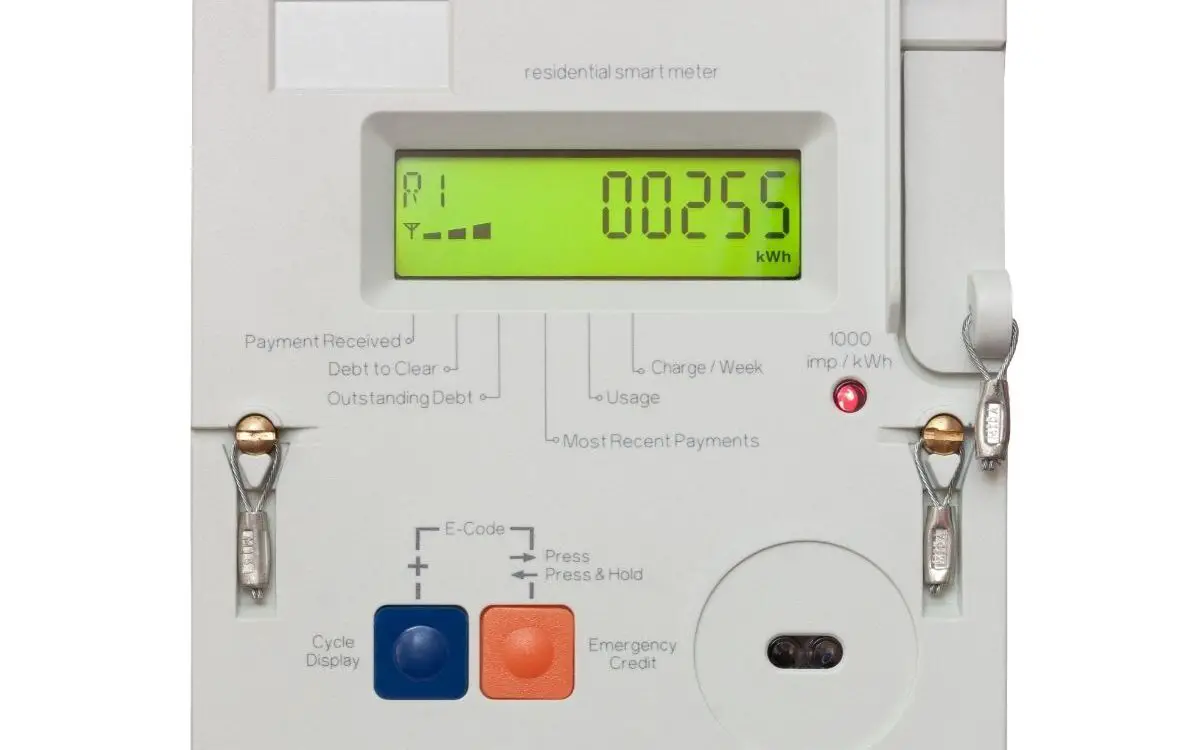Receiving a high energy bill is never a happy time but it should get you thinking about where the most electricity usage is in your house. Once you can pinpoint the top household appliances using the most energy, you can find ways to reduce their consumption or find alternatives that are cheaper. Here are the top appliances using the most energy
Appliances That Use The Most Electricity In Your Home
When looking to save energy, and want to find out which appliances use the most electricity in your home, these appliances are where you should start. An electric shower uses the most in terms of cost per hour. This is followed by an electric kettle. Also appliances that heat up water such as washing machines and dishwashers tend to use most electricity.

This is where our table can help. Here, we list the top 23 electrical appliances in the home and how much they cost to run per hour.
The calculations are based on the average unit cost of electricity in the country per kWh, although different regions prices will vary, as will the power output of your particular appliance.
The table below gives you a general guide to the cost. If they are not highlighted, it means we just couldn’t find an energy efficient model of that appliance.
Disclosure: Some of the links below are Amazon affiliate links. This means that, at no cost to you, we may earn an affiliate commission if you click through the link and complete a purchase.
Electrical Appliances listed in order of highest energy consumption 2022
| Appliance | Average Rating in Watts | Cost per hour in pence |
| Electric shower | 14000 | 5400 (90p for 10 mins) |
| Kettle | 3000 | 100 |
| Tumble Dryer | 2500 | 84 |
| Electric fire | 2500 | 84 |
| Oven | 2100 | 72 |
| Washing machine | 2100 | 72 |
| Oil-filled radiator | 2000 | 68 |
| Hairdryer | 2000 | 68 |
| Dishwasher | 1800 | 60 |
| Electric Grill/hob | 1500 | 50 |
| Iron | 1400 | 48 |
| Toaster | 1100 | 38 |
| Microwave | 1000 | 34 |
| Dehumidifier | 500 | 18 |
| Towel rail | 375 | 12 |
| Fridge-freezer | 300 | 10 |
| Heating blanket | 165 | 6 |
| LCD TV | 160 | 6 |
| Desktop computer | 140 | 6 |
| Games console | 100 | 4 |
| Fridge | 80 | 4 |
| Laptop | 40 | 2 |
| TV box | 35 | 2 |
2022 Calculations are based on a unit rate of £0.34 per kWh and rounded up or down to the nearest pence
Washing machines, showers, and tumble dryers account for a significant portion of the average energy bill, putting them at the top of our energy guzzling list. Anything that requires heating water up will use a lot of energy.
Choosing to wash your clothing at a lower temperature can help you conserve electricity. Use the Eco option if the appliance has one and try to start it only when it’s full.
Fridges and freezers are responsible for a large percentage of the average household’s energy cost. Because these appliances must be on at all times, they are constantly consuming electricity to maintain a steady temperature.
Because they will be on 24 hours a day, investing in an energy efficient one is a major advantage. When shopping for a new refrigerator or freezer, consider both the smallest model that matches your needs and the highest-rated one that you can afford.
What you use to cook can also affect your energy bills Kitchen appliances such as the oven, electric grill and the microwave consume about 4% of your energy bill. Microwaves are more efficient and cook faster than ovens because they only heat the food and not the air around it.
Electronic equipment like an LCD TV, games console and a computer consume energy even when they are turned off. If you keep your laptop plugged in after you’ve stopped using it, it will continue to drain energy.
Similarly, even in standby mode, your television and game console will consume energy.

Other equipment, such as your internet router and modem, will also consume energy. As a result, unplugging your equipment while not in use can help you save money on your power bill.
Which appliances use the most electricity when turned off?
The top appliances that use electricity even when turned off are TVs, computers and phones because they don’t usually have the plugs taken out. Most electrical and electronic appliances can safely be turned off at the plug without damaging their systems.
Check the instructions on the appliance if you are not sure it can be turned off at the switch.
Ways to monitor and lower your electricity usage
There are a few ways to monitor your household electricity consumption:
Meter energy monitor

If you have a smart meter installed, you will have been given an energy monitor that can be left on to give you consumption and cost date for the day, month, week or year.
Meter reading

If you don’t have an energy monitor, you can take a meter reading at regular intervals to give you a picture of how much you use.
Energy consumption analyzer app

This simple app by Cristoph Zens, available on Play Store, helps you keep track of consumption by entering meter readings and usage over time is shown as graphs. Type the words as in the headline here and look for this logo.
Alexa energy monitoring for enabled devices
More home appliances are becoming interconnected now and Alexa has an energy monitoring function to show your energy usage for items connected to the hub.
Plug power meters
These monitor electricity consumption of an appliance you plug into it. The unit plugs into the wall socket and the appliance plug goes into this.
Energy bills
This is the traditional way to view consumption, usually over 3 months.
Summary
The top 5 appliances which use the most electricity in the home are:
- Electric shower
- Kettle
- Electric fire
- Oven
- Washing machine
*The information in this article should be used for general guidance only and not as financial advice. Full details are on the link in the footer to our disclaimer page. Always discuss your requirements with a competent and suitably qualified professional before undertaking any work.
Disclosure: Some of the links below are Amazon affiliate links. This means that, at no cost to you, we may earn an affiliate commission if you click through the link and complete a purchase.
